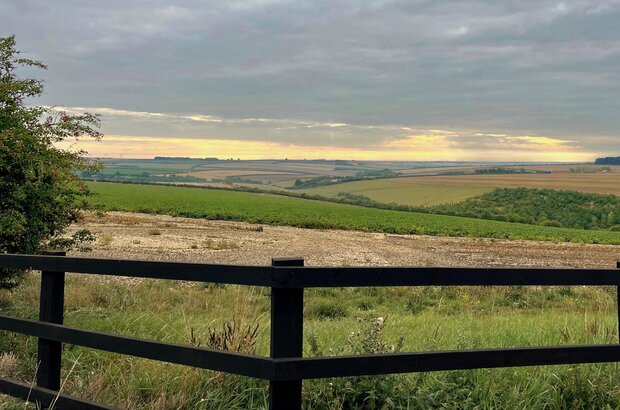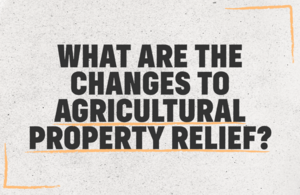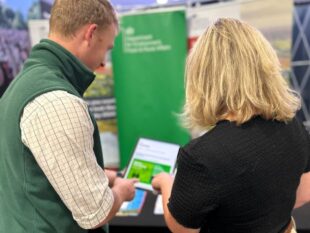
Today we published the Farming and Countryside Programme’s (FCP) annual report. It sets out how funding has been used over the past year and the progress we’ve made with our environmental land management schemes.
We’re also publishing guidance to help eligible farmers, foresters and land managers prepare and submit Countryside Stewardship Higher Tier (CSHT) applications. The online service will open next week for those who have been invited and completed the pre-application process.
In this post, we share a summary.
FCP annual report
Each year, the Secretary of State must publish a report showing how government funding has been used to support farmers and land managers across England.
Publishing the report lets farmers, stakeholders, and the public see clearly how funding and policies are being used to support farms, the environment, and sustainable food production.
Over the past year, we’ve invested:
- £1.394 billion to support farms through our environmental land management schemes (ELM) helping food production become more sustainable, profitable and resilient
- £274 million in productivity and innovation grants so farmers can trial new technologies and drive innovation
- £83 million to improve animal health and welfare on farm.
And the support isn’t stopping there. Funding for ELM schemes paid to farmers will grow by 150%, rising from £800 million in 2023/24 to £2 billion by 2028/29. That’s more money to invest in the land, wildlife, and sustainable practices that make farming thrive for the long term.
Read the full FCP annual report on GOV.UK.
Countryside Stewardship Higher Tier (CSHT)
Next week, the online CSHT service will open for applications from farmers, foresters, and land managers who have been invited and completed pre-application advice. We'll blog again when it opens.
Since January, Natural England and the Forestry Commission have been supporting farmers and land managers to develop their CSHT applications. Over 1,500 people have been invited to receive pre-application support to date.
On the CSHT landing page, you will find:
- the CSHT applicant's guide and CSHT applicant’s checklist
- CSHT agreement holder's guide
- CSHT terms and conditions
- CSHT actions in the 'FIND funding for land or farms tool’
The improved CSHT
The new CSHT offer includes:
- several new actions to protect and maintain watercourses, including actions to improve water quality, manage water edge habitats and reduce the risk of downstream flooding
- floodplain meadows with a new species-rich floodplain meadow action to protect and expand wildlife habitats, provide natural floodwater storage, capture carbon, and enhance climate resilience
- agroforestry with four new actions to reduce soil erosion, improve water and air quality, provide shade and shelter for crops and livestock, and reduce flood risk
- improved delivery including quarterly payments, monthly agreement start dates, and a simpler online application process
Guidance to help you apply for CSHT
We’ve published guidance to help you prepare and submit a CSHT application using the online service, when you’re invited to do so.
We understand that the CSHT process is new and works differently to other schemes, so we’ve included an optional checklist to guide you through each step – from preparing your application to submitting it.
Using the FIND tool to explore CSHT actions
All CSHT actions are now available in the FIND tool. You can use it to:
- Search for specific actions, if you already know what you want to do
- Explore actions based on land types or areas of interest – such as arable land, coastal areas, historic and archaeological features, or water quality.
Each action includes optional advice to support farmers, foresters and land managers. This advice is there to help, but it’s not a requirement of the action.
Printable version of CSHT actions
You’ve told us that having a printable version of the CSHT actions is helpful.
We’ve created a print-friendly version that includes all the actions.
It doesn’t include the optional advice as that would make each action too long and less straightforward to use. Instead, the printable version provides a direct link to the advice in the FIND tool.
Learn more
Back British Farming Day is an opportunity to celebrate the great work already happening across the country.
Across England, farmers are already making a real difference for nature and sustainable food production. Right now, over 77,000 live agri-environment scheme agreements are supporting them to do just that. It is the highest number ever accepted.
Farmers are innovating through inspiring projects supported by the Farming Innovation Programme, while Landscape Recovery has just entered an exciting new phase.
Subscribe to the Farming Blog to read these stories and keep up with our progress. You can also meet the team at agricultural shows or get involved in shaping our work through initiatives including our user research panel.




 The
The 
24 comments
Comment by Richard Pelly posted on
Applications for CSHT are apparently to be initiated by "invitation". What criteria are DEFRA using in deciding to whom they will send CSHT invitations?
Comment by The Team posted on
Hi Richard,
Thanks for your question. Since January, selected groups have been invited to pre-application advice from Natural England and the Forestry Commission. These include:
- those with existing CSHT agreements expiring in 2025
- those with an approved woodland management plan
- applicants who already have an approved agri-environment plan - such as an implementation plan or agroforestry plan – and are ready to develop a CSHT application
Best wishes,
The Team
Comment by Lucy posted on
So if we haven't heard about an agreement that is due to expire at the end of this year, then there is still time for us to receive an invite?
With our agreement, it is only partially due to expire as there were some 10 year options. Is it the case that we would still receive an invite?
Comment by The Team posted on
Hi Lucy,
We understand that some CSHT agreement holders have 10-year agreements that include 5-year options or supplements.
We’re looking carefully at how best to support these agreement holders so they can keep delivering positive environmental outcomes through the land management schemes.
We’ll share more details as soon as possible.
Best wishes,
The Team
Comment by Adrian Darby posted on
We are in this position the great majority of our options come to an end in December 2025 and yet we have not been offered the chance to apply for pre-application advice. If you have not yet sorted out this problem surely we should the same one year extension that is being offered to CS Mid-Tier agreement holders.
For more than forty years, Kemerton Farm has pioneered nature conservation within a food-producing landscape. In that time, we have carried out a number of scientific studies that have been taken up by government as the basis for agri-environment policy, including the first UK experiments into unsprayed field margins which we carried out in the early 1980s. The farm is currently being audited by Trinity Agtech to demonstrate that our soil-building farming model delivers substantial net carbon capture for both arable and beef production. The DEFRA Farming Blog currently features a Case Study about the Kemerton Farm and its pioneering regenerative grazing methods (5 February 2025).
We have internationally important wildlife across the farm including:
• 3 distinct parts of the Bredon Hill SAC and SSSI, as well as 5 Worcestershire Local Wildlife Sites.
• 42 ha of rare flood meadows (NVC type MG4), equating to approximately 3% of the entire surviving UK resource of this habitat type.
• The richest 1km2 in Worcestershire for arable plants recognised by Plantlife being of UK importance.
• The farm is recognised at the UK’s 7th best site for dead wood (saproxylic) beetles.
• The farm is the only UK site where maple bark aphid has been recorded.
• It is recognised as one of the richest sites in the region for mining bees (Andrenidae).
• It is one of the richest sites in the region for dragonfly and damselfly with 24 species.
• The farm is home to 9 species of bat, including barbestelle and lesser horseshoe.
We have been in various stewardship schemes since the 1991 and have a long track record of delivering outstanding outcomes for nature while still producing food.
Comment by John Hawkins posted on
This is pure SPIN... CS is on the scrapheap and DEFRA know that... stop pouring fuel on the CS fire please?
Comment by The Team posted on
Thanks for your comment.
The new Countryside Stewardship Higher Tier (CSHT) scheme is part of the government’s £11.8 billion investment to deliver sustainable farming and food production over this parliament.
Funding for our environmental land management schemes will increase to £2 billion by 2028/29.
Best wishes,
The Team
Comment by Anonymous posted on
So does this imply that 1500 people have already been "invited" to apply? and the rest of us can assume that no invite is forthcoming?
Comment by Sarah Stewart posted on
Hello,
So far, 1,500 have already been invited to receive the pre-application advice, and we'll continue to invite in further applicants for pre-application advice over the rest of 2025/26. This month, the first farmers, foresters and land managers who've received their pre-application advice will be invited to apply online. CSHT will open through a controlled rollout, gradually building up to ensure everyone receives the necessary support.
Best wishes,
Sarah
Comment by Carol Smith posted on
Although we are not in the farming community, we are passionate about the countryside and how it looked after.
We now live on the on the Hereford and Gloucestershire border and have done so for almost thirty years. We were both brought up in the countryside indeed my husband worked on a farm and then Dalgety for many years.
Our concern's
Twice now in recent years, local farmers have drastically pruned hedges, trees nearby. Not with care but literally pulling branches off old mature trees, leaving ripped torn branches making trees susceptible to disease. The first time this happened it was done in March, when birds were nesting! Recently work done by a local farmer involved two perfectly formed old, probably over a hundred years old oak trees undercut they look like lollipops. We can only conclude done one to enable the huge machinery to get under with ease and two to gain the subsity given by clearing a hundred meters of overgrown hedges each year.
We appreciate this work needs doing but with care. Why have charities for example The wild life trust, planting small trees, when farmers are simply ripping them down?
The second point. The machinery used now is so big when it comes down our country lanes it rips up the roads and hedgerows leaving debree and mud everywhere.
The third point.When we first moved here, it was truly idilic. Countryside with wheat, barley oil seed rape.
We are now constantly surrounded by maize grown for bio fuel.
Final point. Footpaths. This is part of Poets Way. You have either got to be an athlete to get over the styles yourself and be able to pick your dog up as only a very small athletic dog could get over. Often path's are not reinstated once work has been carried out and many paths are unsafe as beefers are in the field and are not used to people.
We appreciate how hard it is for farmers and support them how we can.
But we feel the stewardship of the land is lacking in expertise and care.
We look forward to your response.
Mr. Mrs Smith
I can provide photographs of some of the issues raised.
Comment by The Team posted on
Hi Carol,
Thank you for taking the time to share your observations and concerns about how the countryside is being managed in your area. It’s clear how much you care about the land and how deeply rooted your connection to the countryside is.
There are rules in place to protect hedgerows between March and August. You can find more detail here: https://www.gov.uk/guidance/hedgerow-management-rules-cutting-and-trimming
If you suspect there has been a breach of the rules, you should report this to the Rural Payments Agency (RPA) - the details of how to contact the RPA are on the page linked above.
On footpaths, if a path is blocked, unsafe, or not reinstated, this can be reported to your local authority’s rights of way team: https://www.gov.uk/find-local-council
We also recognise the points you raise about cropping changes, such as more maize being grown for biofuels. We are working with farmers to encourage sustainable practices that balance food production, renewable energy, and environmental stewardship.
Your feedback on road safety and the impact of machinery is also noted. Thank you again for taking the time to get in touch.
Best wishes,
The Team
Comment by Andrew Loftus posted on
Hello there,
If I believe my farm would be an ideal candidate for a Higher Tier agreement, but i've not had one previously, is there any way of seeking an invitation? If so, who should I contact?
Very best
Andrew
Comment by Sarah Stewart posted on
Hi Andrew,
At the moment, the scheme is invitation only. If you are not able to enter CSHT now, there may be preparation you can do to ensure you are ready. You can apply now for capital grants to help you prepare plans to support a CSHT application: there are a range of grants available to support this, including implementation plan, woodland management plan, agroforestry plan, species management plan and a feasibility study, as well as a Moorland Mapping tool.
I hope this helps.
Best wishes,
Sarah
Comment by Caroline posted on
What if you are not in the group of:
- those with existing CSHT agreements expiring in 2025
- those with an approved woodland management plan
- applicants who already have an approved agri-environment plan - such as an implementation plan or agroforestry plan – and are ready to develop a CSHT application.
Is there any chance of getting into CSHT? I have an SFI agreement which includes the endorsed Action GRH6 – Manage Priority Habitat Species-Rich Grassland. Within the SFIEO Endorsed Action Approval Form, the officer has recommended/approved the capital items GR1 and GR3. Please can you advise what the process is to apply for these?
Comment by The Team posted on
Hi Caroline,
Thanks for getting in touch. We will confirm more details about the further roll out of CSHT in due course. Here is the link to the guidance for capital items: https://www.gov.uk/government/collections/capital-items-guidance-for-applicants-and-agreement-holders
Best wishes,
The Team
Comment by Caroline posted on
Thank you for your response, but am I correct in thinking GR1 and GR3 are only available via CSHT?
Comment by Sarah Stewart posted on
Hi Caroline,
No problem. GR1 and GR3 are both part of Countryside Stewardship Higher Tier Capital Grants offer (2025).
https://www.gov.uk/capital-grant-finder/gr1-create-or-restore-grassland-habitat
https://www.gov.uk/capital-grant-finder/gr3-floristically-enhanced-seed-mix-for-grassland-habitat
Best wishes,
Sarah
Comment by Denise Seely posted on
THe blog mentioned a printable version of the CSHT actions. I could not find it - please supply a link. I hope a download of actions in an EXcel file is provided. A pdf is not really helpful for deciding the appropriate actions easily. Thank you
Comment by Sarah Stewart posted on
Hi Denise,
The link you’re looking for is the fourth one down on the CSHT guidance page, ‘CSHT actions (print version)’. For ease, here it is: https://www.gov.uk/government/publications/countryside-stewardship-higher-tier-csht/csht-actions-print-version
Thanks for sharing your views on an Excel doc. I passed this on to the policy and content teams who do not currently have plans to produce one, due to accessibility requirements, but they say they will keep this under review.
Best wishes,
Sarah
Comment by Denise Seely posted on
Thank you for sending that link. I'm afraid this function does not suit requirements. Actions are in many subcategories and not all in a subcategory are suitable. So to print a number of subcategories, wondering if actions in other subcategories are relevant is a waste of paper. Did anyone ask the farmers for print requirements?????
Good luck with the next iteration!
Thank you, Denise
Comment by anon posted on
Where are the CS Organic Options that layer over the CSHT Options ?
Comment by The Team posted on
Hello,
The organic options are delivered through the Sustainable Farming Incentive (SFI).
Best wishes,
The Team
Comment by Farmer posted on
Hi
If a farm no longer has environmental schemes available will it be compulsory purchased for nature instead?
Comment by Sarah Stewart posted on
Hello,
Thanks for getting in touch.
Land that is not part of an environmental scheme will not automatically be subject to compulsory purchase.
Compulsory Purchase Orders are a legal tool that the government can use in very specific circumstances. For example, for infrastructure projects or public works. They are not used simply because environmental schemes are no longer available or because land isn't entered into one.
Ownership stays with the landowner. Any future schemes for nature or conservation participation are voluntary, and there is no general policy to purchase land for nature by force.
If you’d like more detail on when CPOs can be used, visit: https://www.gov.uk/government/publications/compulsory-purchase-process-guidance
Best wishes,
Sarah